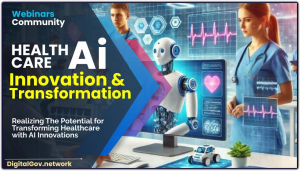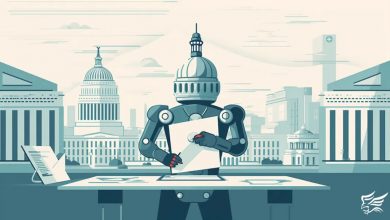Realizing The Potential for Transforming Healthcare with NVidia AI
From streamlining administrative tasks to aiding in diagnosis and treatment decisions, AI is reshaping the way healthcare is delivered.
 Artificial Intelligence (AI) is revolutionizing the healthcare industry, offering innovative solutions that have the potential to transform patient care and improve outcomes.
Artificial Intelligence (AI) is revolutionizing the healthcare industry, offering innovative solutions that have the potential to transform patient care and improve outcomes.
From streamlining administrative tasks to aiding in diagnosis and treatment decisions, AI is reshaping the way healthcare is delivered.
Let’s explore the various ways in which AI is making a significant impact on healthcare.
1. Enhanced Diagnostics and Personalized Treatment
AI algorithms can analyze vast amounts of patient data, including medical records, lab results, and imaging studies, to assist healthcare providers in making accurate diagnoses and developing personalized treatment plans. By leveraging machine learning and deep learning techniques, AI can identify patterns and trends that may not be readily apparent to human clinicians, leading to more precise and timely interventions.
2. Predictive Analytics and Preventive Care
AI-powered predictive analytics can help healthcare organizations identify individuals at risk of developing certain conditions or experiencing adverse events. By analyzing data from wearable devices, electronic health records, and other sources, AI algorithms can predict potential health issues and recommend preventive measures to mitigate risks. This proactive approach to healthcare can lead to better patient outcomes and reduced healthcare costs.
3. Streamlined Administrative Processes
AI technologies, such as natural language processing and chatbots, are being used to automate administrative tasks in healthcare settings. From scheduling appointments to processing insurance claims, AI can streamline workflows and improve efficiency, allowing healthcare providers to focus more on patient care. By reducing administrative burdens, AI enables healthcare organizations to deliver services more effectively and enhance the overall patient experience.
4. Drug Discovery and Development
AI is revolutionizing the process of drug discovery and development by accelerating the identification of potential drug candidates and predicting their efficacy and safety profiles. By analyzing vast amounts of biological data and simulating drug interactions, AI algorithms can expedite the research and development of new treatments for various diseases. This not only speeds up the drug discovery process but also reduces costs and improves success rates in bringing new therapies to market.
5. Remote Monitoring and Telemedicine
AI-powered remote monitoring solutions enable healthcare providers to track patients’ health status in real-time and intervene promptly when necessary. By leveraging wearable devices and IoT sensors, AI can collect and analyze patient data outside traditional healthcare settings, enabling remote consultations and telemedicine services. This technology enhances access to care, particularly for patients in remote areas or those with limited mobility, and improves the overall quality of healthcare delivery.
Conclusion
Artificial Intelligence holds immense potential for transforming healthcare by improving diagnostics, enabling personalized treatment plans, enhancing preventive care, streamlining administrative processes, revolutionizing drug discovery, and expanding remote monitoring capabilities. As AI continues to evolve and integrate into healthcare systems, it has the power to revolutionize patient care, drive innovation, and ultimately improve health outcomes on a global scale.




